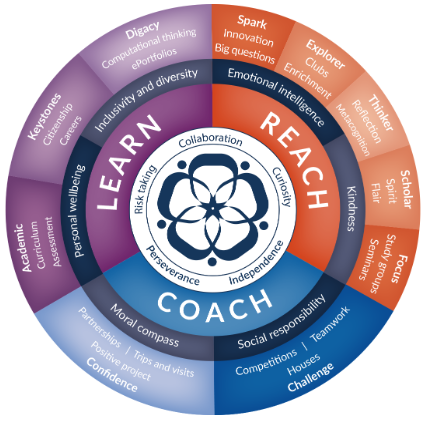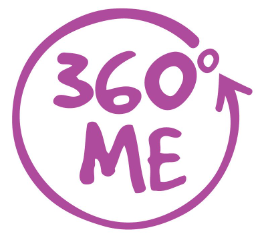This famous line is attributed to the existentialist philosopher Jean-Paul Sartre. He said that the choices we make represent a terrible burden for us as human beings. Not because life itself is terrible, but because we are ‘condemned to be free’ and must take responsibility for everything we do. Sartre argues it is actually our choices that define us as individuals, not our personalities or intellects. Indeed, this is not something we can ever escape, because even the act of deciding not to choose is a choice.
As adults, we can all look back at pivotal moments in our lives and consider what ‘might have been’ had we made different decisions. In most cases, it is simply a matter of reflecting on the multiplicity of possible outcomes, and enjoying the positives in our lives afforded by the paths we did take. However, there are occasions when a decision taken in haste might have led to something less positive, that still impacts on our lives now, or that could have taken months or years to resolve.
I often say that school days are our golden opportunity for shaping the future, for learning how to make good choices and for building the foundations of a rich and rewarding adult life. We spend a long time being grown up and the precious moments of childhood seem increasingly fleeting and distant as time goes by. This is why as teachers we must focus on the children with us today and give them the best chance to achieve their ambitions for tomorrow, through kindness, flexibility and understanding. This is one of the central tenets of our school teaching and learning manifesto, which aims to give teachers the tools for developing excellent learning environments in school. For pupils, this means getting to know themselves too, so they can develop a positive academic self-image. We believe this comes through a 360-degree approach to teaching, learning and personal development. What we also know as the ‘360-degree Me’ approach in school, and as reflected in our holistic approach wheel.


We see the school as a breeding ground for open-minded young learners who can quickly find ways to access the curriculum and make success a habit as they move through the years. We believe that the best learners are not afraid to take risks and are happy to learn from failure, they are inquisitive and think deeply about the relevance of everything they discover about the world, both for themselves and within the cultures and traditions around them. This can only be achieved if they have confidence in the people around them to understand their needs and to guide them in finding the right ways to build their own self-reliance.
To help pupils develop the habits that will lead to sound decision-making skills, we give them as many opportunities to make choices for themselves as possible in school. One important way of doing this is by starting the academic options process early in senior school. For example, in Year 8 pupils make choices about which language options they will take into Year 9, including the option to take a brand new subject, Global Outlook. Pupils in Year 9 select two creative circus subjects from the 5 they start with, as an early taste of how GCSE options will impact their timetables.
Throughout Key Stages 4 and 5, students are given the opportunity to practise their decision making in multiple ways. Firstly when choosing from the extensive menu of enrichment options and then when deciding on which additional volunteering and academic electives they will build into their Sixth Form portfolios. This is not to mention the decisions all students learn to make in their academic lessons and the huge range of extracurricular activities they choose from on a daily basis. In the latest school inspection report, this was particularly praised by inspectors who commented that ‘pupils make good decisions; they can justify their choices and understand the importance of individual autonomy and responsibility’.
However, pupils are not left to their own devices when making choices. To return to the question of academic decision making, the really important ones are for GCSE and A Levels, when dedicated processes support and guide the students towards the best possible pathways individually. The timetable is then crafted to suit their options, but not with a fixed set of blocks that reduce the flex within their choices, as seen in many schools. Beyond this, we allow students at GCSE to make some decisions on the quantity of subjects they opt for; giving them the chance to build in private study periods if they wish, following guidance from specialist staff in school. Of course, at every step, we ensure that they have reflected on their decisions carefully, with an eye to the future and on what is most likely to help them achieve their individual goals.
At this time of year, pupils in Year 9 and Year 11 are acutely aware of the magnitude of the academic choices that they are facing and the school is ready to support them. Following the Sixth Form information evening in October, individual consultations for Year 11 students have begun this week, allowing parents, guardians and students time with experienced teachers to reflect on their priorities. Shortly after Christmas, the focus will turn to the Year 9 pupils as we invite families into school to learn more about the four-year journey to GCSE and A Levels at the school.
No stone is left unturned in the quest to ensure students make the right choices at both these vital points. However, we also know that young people need flexibility and understanding after the event, and we remain open to changes for a period of time once the choices are made, within the realms of the possible. To do otherwise would be a disservice to the young people we nurture, who need to know that we understand their priorities and recognise that mistakes can be made, and rectified, while their futures are still very much an open book.
J K Rowling’s take on the importance of making good decisions is perhaps more accessible than the one I started with. Albus Dumbledore says, ‘it is our choices, Harry, that show what we truly are, far more than our abilities.’ In any event, the importance of making good choices in life cannot be underestimated; there is something inescapable about the impact of our decisions and we are more likely to be successful and happy if we make the right ones.
References:
Sartre J-P, 1943, Being and Nothingness An Essay in Phenomenological Ontology, Routledge, 2018
Rowling J K, 1998, Harry Potter and the Chamber of Secrets, Bloomsbury
Independent Schools Inspectorate FCI/EQI report 2019 available at https://www.northamptonhigh.co.uk/inspection-reports/
Mr Henry Rickman
Deputy Head